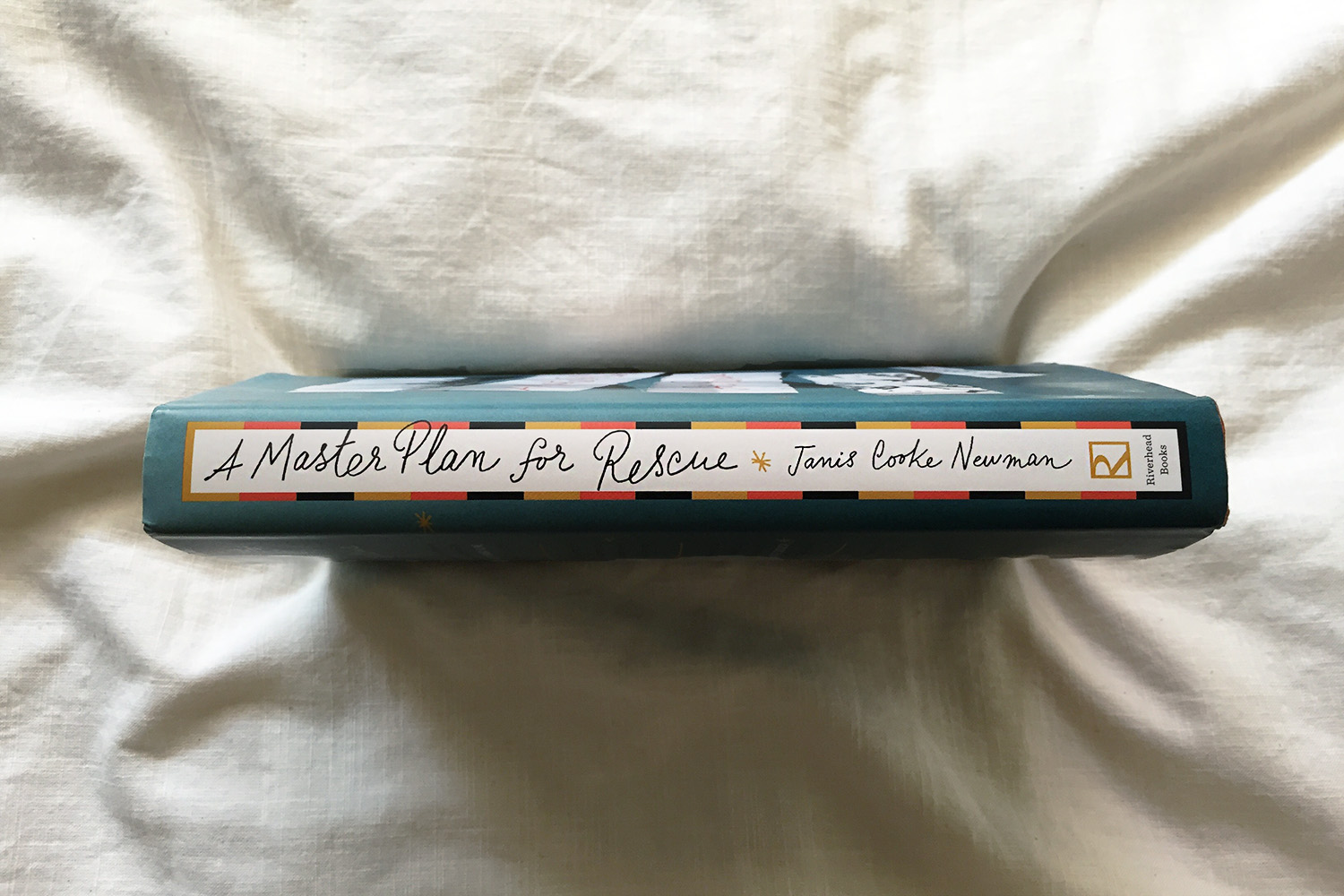
Regardless of what book I am reading, I always find the perfect place to pause, an invisible intermission, that has nothing to do with page numbers or chapters. I sense a pending shift in the book, so I pause to reflect, to prime my mind for what comes next. To refresh my memory, I flip back to random pages and re-read from wherever my eyes land, a few paragraphs, maybe a few pages, and will do this several times.
Janis Cooke Newman’s A Master Plan for Rescue (Riverhead, 2015) is unique in that I did not reach that pause for a very long time. In fact, I’m almost finished with the book. It is divided into two parts that ultimately intertwine, and though the story unfolds slowly, it is good enough to want to push forward, to feel eager for more information. The first part follows Jack, a twelve-year-old boy in Manhattan who loses his beloved father to a freak accident as WWII ramps up. The second follows Jakob, a Jewish mechanic in Berlin who falls in love as his life descends into the hell that is Nazi Germany.
A Master Plan for Rescue suggests that when faced with untold difficulty, people resort to magical thinking, as if our minds try to shield us from pain that we cannot handle. Jack, faced with the death of his father, continues to communicate with him via code-o-graph and tells himself that he left to hunt down Nazi spies. Jack’s mother, faced with the death of her husband, joins the “Desperate Catholics” who rush to the front row of church and look to the ceiling as they loudly repeat scripture. Jakob’s love, Rebecca, has a weak heart and knows that if the Nazis do not kill her, her heart will. She becomes fixated with escaping to Paris and desperately begins every conversation with, “When I go to Paris…” The pace quickens when the two stories merge in New York City, and I’m eager to discover whether the magical thinking can sustain itself. I always enjoy historical fiction more than I think I do, and A Master Plan for Rescue is making me consider that all over again.
Janis Cooke Newman’s A Master Plan for Rescue (Riverhead, 2015) is unique in that I did not reach that pause for a very long time. In fact, I’m almost finished with the book. It is divided into two parts that ultimately intertwine, and though the story unfolds slowly, it is good enough to want to push forward, to feel eager for more information. The first part follows Jack, a twelve-year-old boy in Manhattan who loses his beloved father to a freak accident as WWII ramps up. The second follows Jakob, a Jewish mechanic in Berlin who falls in love as his life descends into the hell that is Nazi Germany.
A Master Plan for Rescue suggests that when faced with untold difficulty, people resort to magical thinking, as if our minds try to shield us from pain that we cannot handle. Jack, faced with the death of his father, continues to communicate with him via code-o-graph and tells himself that he left to hunt down Nazi spies. Jack’s mother, faced with the death of her husband, joins the “Desperate Catholics” who rush to the front row of church and look to the ceiling as they loudly repeat scripture. Jakob’s love, Rebecca, has a weak heart and knows that if the Nazis do not kill her, her heart will. She becomes fixated with escaping to Paris and desperately begins every conversation with, “When I go to Paris…” The pace quickens when the two stories merge in New York City, and I’m eager to discover whether the magical thinking can sustain itself. I always enjoy historical fiction more than I think I do, and A Master Plan for Rescue is making me consider that all over again.


This is a unique approach to reading. You seem very steady… I am a story glutton! I consume the story like a happy meal! Interesting perspective… Thanks for sharing.
I know how that goes too! 🙂
This is how I like to read, savoring every word and every page and stopping to take it in. I see a lot of people nowadays looking for quick easy reads and getting frustrated when they can’t follow due to the speed they read. By the way, love the premise of the book, I am going to look for this one!
Amen! Thank you for your lovely words.
I like that there are still people who enjoy every word in a book instead of looking for speed-reading techniques. And though I’m not sure I’m into historical fiction, this book sounds interesting.
Agreed!
Yes! I was intrigued by speed-reading techniques in high school, mainly because of awful textbooks. Never came across any magical approach though….
Sounds like you’re really enjoying this. That’s my goal as a writer – to write things that other people fall in love with too, not just me loving my own words.
Looks like you’re really enjoying the book! I’m also an avid reader and I’d recommend you read ‘A Thousand Splendid Suns’ by Khaled Hosseini. He is my all time favourite author and his style of writing is absolutely beautiful. This book will for sure move you to tears. Hope you read it soon 🙂
http://maviayox.blogspot.co.uk